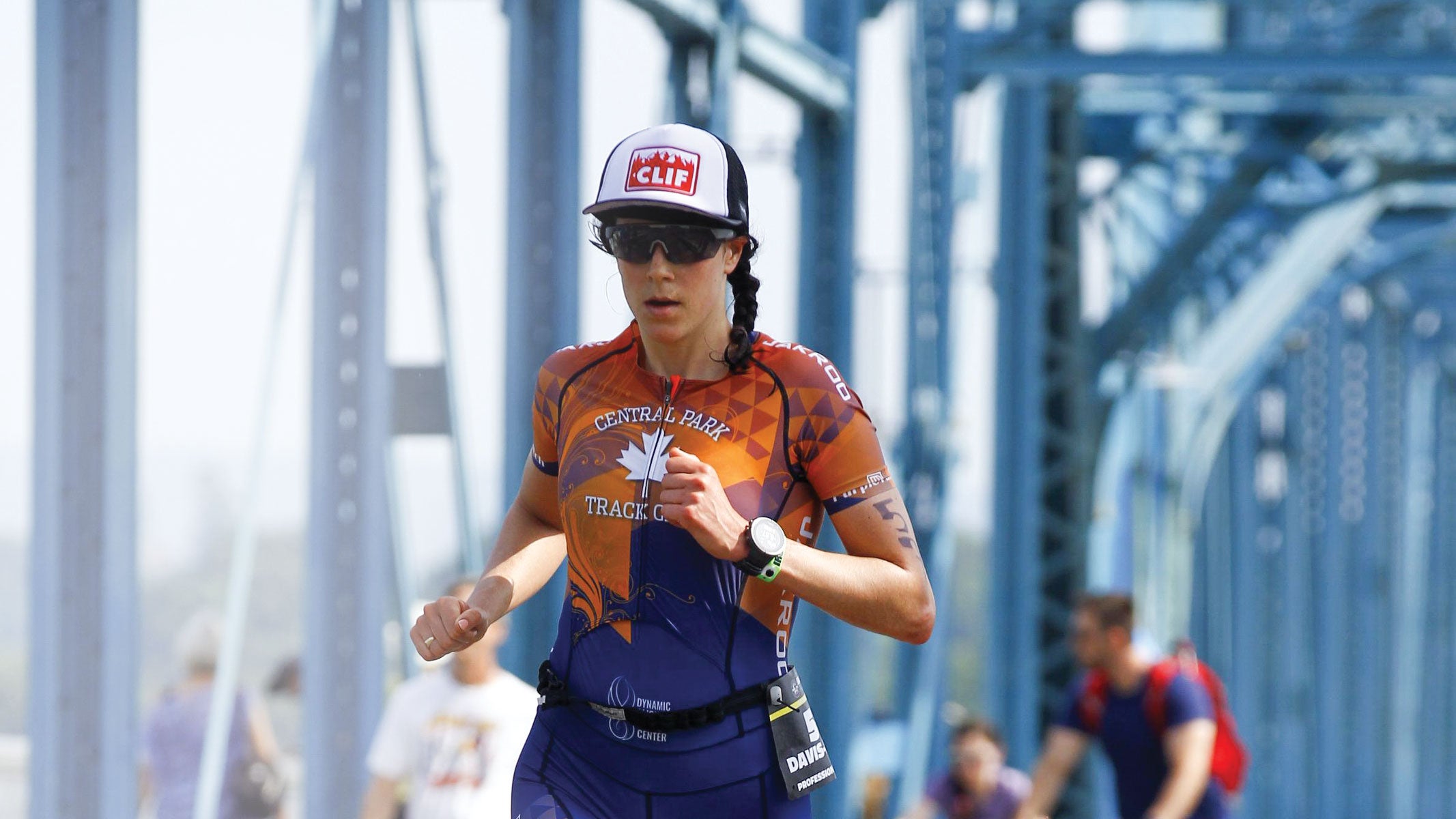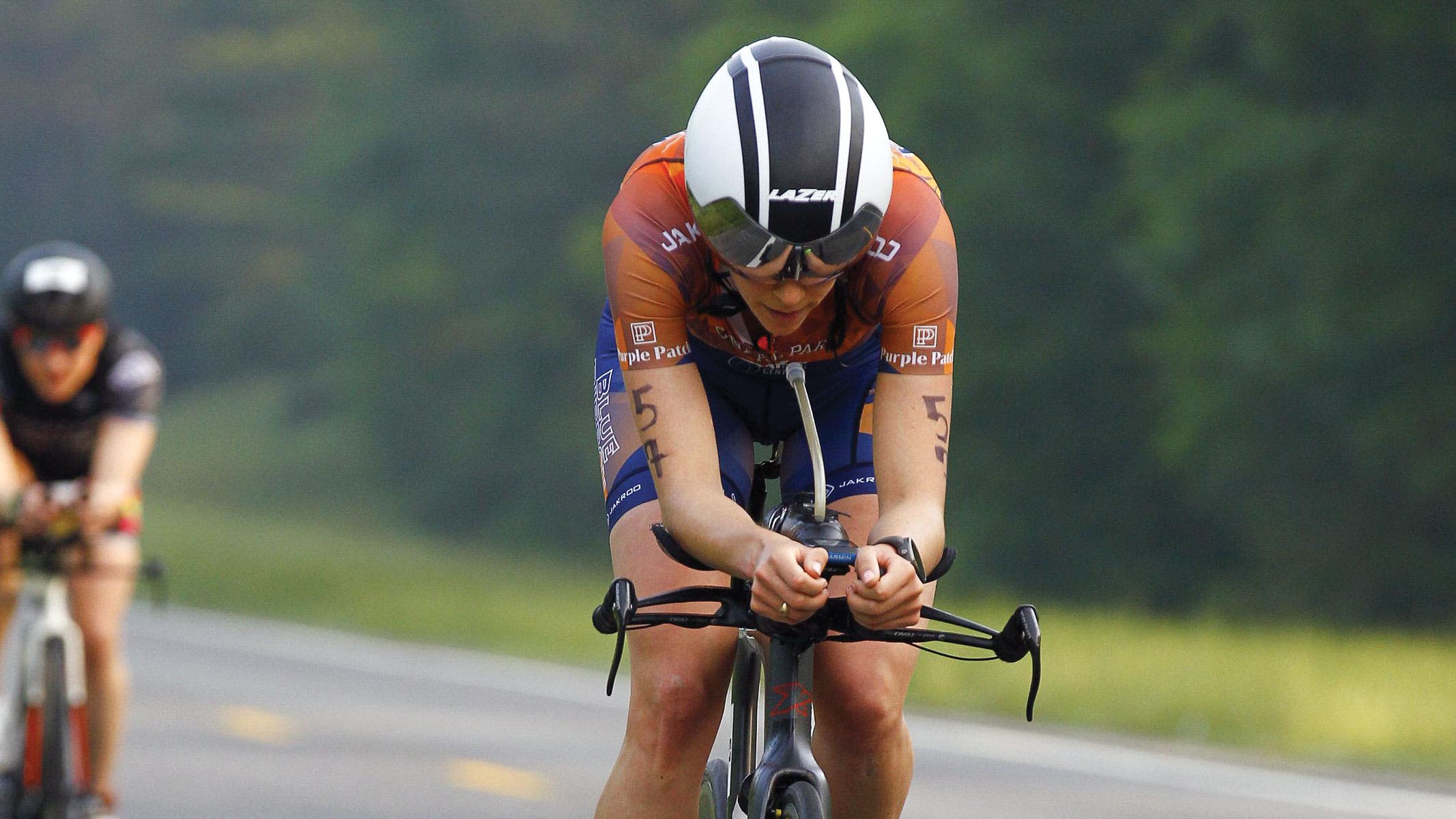Make It Work: This Doctor Is Also a Pro Triathlete

(Photo: provided by Cecilia Davis-Hayes)
In late March, during the height of the COVID-19 crisis, Cecilia Davis-Hayes posted a selfie on her Instagram account. The photo shows her in dark blue medical scrubs, most of her face covered by a yellow mask. She’s holding a pastry from a local bakery, its parchment wrapping stamped with a sticker exclaiming, “You are a hero!”
The sticker speaks the truth: Like a real-life Marvel super-hero, Davis-Hayes leads an impressive—almost impossible—double life. At any given time, she’s toggling between the dual roles of doctor and pro triathlete, having proven herself with a number of top-five finishes, including at 70.3 Mont Tremblant and the New York City Triathlon. As a resident on the intensive care unit at New Jersey’s Englewood Health Hospital, in the COVID-19 epicenter, she also puts in weekly 60-hour shifts. Yet despite the physical and mental rigors of being on the frontlines of a pandemic, Davis-Hayes still gets it all done.
How? For starters, the 30-year-old New York City resident is used to tight timelines: She turned pro in 2017 while balancing the demanding courseload at Columbia Medical School. And over the past few years, she’s perfected the art of efficiency. She often combines a workout with her commute, running or cycling the seven-mile route from the apartment she shares with her husband, Erik, to the hospital. And she stays flexible, modifying her training and racing when she’s overwhelmed with work.

“On a daily basis, I don’t overly stress if I have intervals planned but the work day gets crazy and I have to bag my plan,” she said. “And last season, I took advantage of a more relaxed schedule during the last few months of medical school to get in a bunch of triathlons, where I saw some of my best results.”
But even the most flexible and efficient superhero can’t escape the emotional toll of witnessing first-hand the heart-breaking effects of an unforgiving virus. While Davis-Hayes—who has experienced both tragedies and triumphs while working with COVID-19 patients—said she’s skilled at “leaving work at work,” she does rely on triathlon to stay centered.
“Cycling and running helps with my mental health and personal balance,” she said. “They require total energy and focus, which is a welcome shift of mindset after I get off of work.”
Davis-Hayes also attributes her ability to rise to this epic challenge to a deep internal drive for excellence, one she first displayed as a soccer star and later as a category-1 cyclist before turning to triathlon.
I've always been motivated to be the best at whatever I take on.
“I’ve always been motivated to be the best at whatever I take on. While I tried to do ‘everything’ when I was younger, I realized by the time I got to college that was impossible,” she said. “So I stuck with the things in which I felt I could succeed: medicine and endurance sports. The process of improvement, the consistency, the small tweaks, the repetition…all of that really excites me.”
Although her race schedule still lies in the clutches of COVID-19 and its aftermath, Davis-Hayes does have some certainty in her medical career: In July, she will start a radiology residency at Weill Cornell/New York Presbyterian Hospital in Manhattan. And she’ll continue to charge forward in both of her careers—if for nothing else than her own fulfillment.
“I’ve always championed the philosophy that having two passions helps to achieve balance,” she said. “So if things aren’t going smoothly in athletics, I can always back burner it and turn my attention to medicine.”